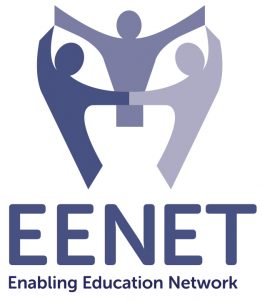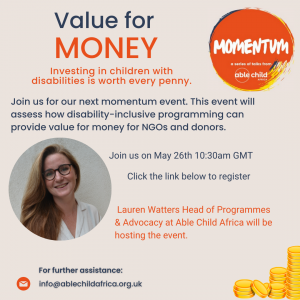EENET is 25 years old!
If you have any stories please do email them to us at info@eenet.org.uk or check out our contact page for more ways to share!

EENET is 25 years old!
If you have any stories please do email them to us at info@eenet.org.uk or check out our contact page for more ways to share!

INEE has recently launched a new Guidance Note for Teacher Wellbeing in Emergency Settings.
This publication is part of a larger project, funded by Education Cannot Wait, to develop a Teacher Wellbeing Toolkit in order to meet the needs of teachers in their local context.
The guidance note is aligned with the INEE Minimum Standards, and it puts the wellbeing of teachers at the center of response and recovery efforts in conflict and crisis affected settings. Not just because an investment in teachers is an investment in children and adolescents, but because, at this moment in history, teachers deserve our unparalleled attention as an end unto itself.
The recommendations contained in this tool set forth and define a benchmark for teacher wellbeing; a standard of care and recognition that every teacher – regardless of where they live and work – should expect from the government and humanitarian architecture and communities that support them.
This new guidance note is a free and open source and should be contextualized for use in alignment with local needs, norms, and values.
The Global Education Cluster Cash Task Team launched the research report “The Role of Cash and Voucher Assistance in Increasing Equity and Inclusion for Girls and Children with Disabilities in Education in Emergencies” produced by CGA Technologies under the direct supervision of World Vision on behalf of the Task Team.
The webinar, which took place virtually on Thursday May 5th, from 14:00-15:15 CET, was hosted by UNICEF and moderated by Emilia Sorrentino (Education in Emergencies Advisor, Plan International, and co-chair of the GEC Task team). CGA Technologies along with World University Service of Canada (WUSC) and UNICEF presented two case studies included in the report based on their programmes in Kenya and Syria.
The COVID-19 pandemic turned education upside down during much of 2020 and 2021. Schools have reopened in most places, but our education systems will never be the same again. We all experienced not just disruption and challenges but innovations and achievements that can shape the future of education for the better.
The theme for the 2022 edition of Enabling Education Review will be:
“Inclusion in the new normal”
The deadline for submitting first drafts of articles is 30 June 2022. Details of suggested topics and how to submit articles are provided below.
Contact info@eenet.org.uk with any questions and your submissions.
We want to share your experiences of transitions back into school, what the situation is like in the ‘new normal’, and what we have learned that could help us rebuild education systems better and more inclusively. For example:
Date: 26 May 2022
Time: 10.30 GMT
Join Able Child Africa for the fifth live event in their Momentum series.
This event is hosted by Lauren Watters, Head of Programmes and Advocacy at Able Child Africa and will discuss how disability-inclusive programming can provide value for money for NGOs and donors.
To register please visit the event website.
Please contact info@ablechildafrica.org.uk with any questions.

During 2020 and 2021 EENET used a grant from OSF to develop 4 online courses called Inclusive Beginnings. The online courses are available free-of-charge on EENET’s LearnLink platform.
‘Inclusive Beginnings’ courses:
‘Versatile Videos’ courses
All 4 courses involve light reading, watching short video clips, and doing fun activities, and you will get a certificate for completing each course.
All 4 courses involve light reading, watching short video clips, and doing fun activities, and you will get a certificate for completing each course.
Enjoy the new courses!
A new short advocacy video has been created by Humanity & Inclusion on the importance of inclusive education.
Please share!
The 2021 Annual Report for the Bernard ven Leer Foundation is now online in an interactive format.
It focuses on sharing powerful stories about supporting scaling policies and programmes that impact the wellbeing of babies, toddlers and their families. The selected stories highlight the most important achievements and learnings related to the strategic goals in Parents+, Urban95 and Early Years Thought Leadership.
Summaries are available in Arabic, Dutch, French, Hebrew, Portuguese and Spanish.
Call for Articles – Enabling Education Review – Issue 11 – 2022
The COVID-19 pandemic turned education upside down during much of 2020 and 2021. Schools have reopened in most places, but our education systems will never be the same again. We all experienced not just disruption and challenges but innovations and achievements that can shape the future of education for the better.
The theme for the 2022 edition of Enabling Education Review will be:
“Inclusion in the new normal”
We want to share your experiences of transitions back into school, what the situation is like in the ‘new normal’, and what we have learned that could help us rebuild education systems better and more inclusively. For example:
The deadline for submitting first drafts of articles is 30 June 2022. Details of suggested topics and how to submit articles are provided on the EENET website.
Contact info@eenet.org.uk with any questions.
UNESCO has released an Inclusion in Education evaluation report. A two-page summary is also available in English and in French, highlighting the key messages of the evaluation.
The evaluation aimed to identify what has been achieved so far, whether UNESCO is on the right track as a standard-setting organization towards achieving the 2030 inclusion agenda, and reconfirm the Organization’s comparative strengths and optimal positioning in this area of work. It provides programmatic and strategic level recommendations to feed into the formulation of future strategic directions for the Organization’s work on inclusion in education and inform the way forward.
The evaluation builds on the momentum of increased policy attention to inclusion, and addresses inclusion-related challenges exacerbated by the COVID-19 pandemic and concludes that the UNESCO Education Sector shall further improve the visibility and use of data on vulnerable and marginalised learners and strengthen the focus on inclusion consistently across all thematic strands in education.